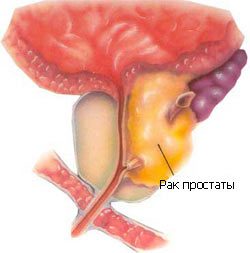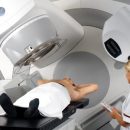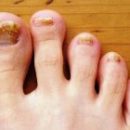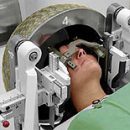What factors contribute to the occurrence of prostate cancer?
Read in this article.
Content
Prostate cancer risk factors

Age. The probability of the occurrence of prostate cancer is rapidly increasing after 50 years and more than 70% of cancer cases are detected in men after 65 years. To date, it is not clear why the frequency of this type of cancer increases with age.
Race. Prostate cancer significantly occurs in African American men compared to white and is detected in later stages. The causes of such racial differences are not clear.
Nationality. Prostate cancer is more often diagnosed in North America and North-West Europe. And less - in Asia, Africa, Central America and South America.
Food. Men who use a large number "red" Meat and products with high fat and little eating fruits and vegetables, have a greater chance of getting the prostate cancer. Some researchers believe that men who use a large amount of calcium with food or in the form of additives, there is an increased risk of a common prostate cancer. Some substances, for example, vitamin B and E, as well as mineral selenium can reduce the risk of prostate cancer.
Thus, to reduce the likelihood of prostate cancer, it can be recommended to reduce the consumption of the so-called "Red meat" and increase the daily consumption of fruits and vegetables.
Physical activity. Regular physical activity Along with maintaining normal weights can help reduce the risk of prostate cancer.
Family history. In some families there are multiple cases of prostate cancer, which gives the right to assume the presence of inherited factor. The presence of the father or brother of the prostate cancer doubles the risk of prostate cancer. Risk is even more increasing if several relatives rang up with cancer of the prostate gland, especially in young age.
Some inherited genes increase the risk of several types of cancer. For example, inherited mutations of BRCA1 or BRCA2 genes are responsible for more frequent occurrence of breast cancer and ovaries in some families. The presence of these gene mutations also increases the risk of developing prostate cancer. However, they are responsible for a small percentage of prostate cancer cases.
Vasectomy (excision of a seed-making duct). Some suggest that in men who have undergone a vasectomy operation (male barren), there is a slightly elevated risk of prostate cancer. And this risk will be even higher if the operation is completed until 35 years of age.
Is it possible to prevent prostate cancer?
The exact cause of prostate cancer is not known, so it is impossible to prevent the development of most cases of cancer of this localization. Many risk factors, such as age, race and family history, can not be changed.
 The information about the prostate cancer provides the right to assume that some cases of this type of cancer can be prevented. One of the possible risk factors is a diet and can be changed.
The information about the prostate cancer provides the right to assume that some cases of this type of cancer can be prevented. One of the possible risk factors is a diet and can be changed.
By changing the nature of nutrition, you can reduce the risk of prostate cancer. It is recommended to use various products of plant origin and the limitation of the so-called red meat, especially with a high content of fat or recycled. Daily 5 and more times it is necessary to use fruits and vegetables. Bread coarse bread, grain flakes and grain products, rice, pasta and bean products are also recommended. Such nutrition can reduce the risk and other types of cancer.
Tomatoes in any form (fresh, recycled in the form of sauces and ketchup), grapefruits and melons contain vitamin-like antioxidant substances, which prevent DNA damage, and this leads to a decrease in the risk of developing prostate cancer.
Reception of vitamins and minerals can affect the risk of prostate cancer, but this question is not finally studied. There are guidance on the fact that daily reception 50 mg (400 interface.Uzh) vitamin E can reduce the risk of cancer of this localization. Mineral Selenium can also help reduce the risk of developing prostate cancer. On the other hand, vitamin A in the form of an additive can increase the risk of this type of cancer.
Androgens contribute to the growth of normal and tumor prostate gland cells and can play a role in the development of cancer of this organ.
In no case can not be used to prevent prostate cancer those drugs that are used for its treatment. It is recommended to make a blood test for the PSA and consult a urologist about the results of the analysis to every man over 45 years every year. If there is a suspicion of cancer, the prostate biopsy must be performed, and in case of confirmation of the diagnosis — Prostatic Removal Operation.









